If you’re in the process of hiring new employees for your business, you’ll likely need an employment or job application form. These forms help facilitate the hiring process by collecting necessary information from candidates in a clear and organized way.
What is an Employment Application Form?
An employment application form is a document that job seekers complete to provide relevant information to potential employers. It helps hiring managers screen applicants quickly and easily, and provides a standardized way to collect information.
Benefits of Using Employment Application Forms
There are several benefits to using employment application forms when hiring for your business. First, they provide a structured and consistent way to collect information from all applicants. This makes it easier to compare candidates and identify the most qualified individuals.
In addition, an employment application form can help ensure that you are collecting all necessary information from each candidate. By asking specific questions about education, work history, and skills, you can gain a more complete picture of each applicant and their qualifications.
Employment application forms can also help protect you from legal issues related to hiring. By including standard questions about education, work experience, and criminal history, you can ensure that you are treating all candidates fairly and consistently.
Common Components of an Employment Application Form
While the specific components of employment application forms may vary depending on the type of job and the requirements of the employer, there are several common components that are typically included. These may include:
Contact Information
Applicants are typically asked to provide their full name, address, phone number, and email address.
Job History
Employers typically ask for details about previous employment, including the name of the employer, position held, dates of employment, and reason for leaving.
Education
Applicants are typically asked to provide details about their education, including the name of the institution, dates attended, degree earned, and major.
Skills
Employers may ask about specific skills that are relevant to the job, such as proficiency with certain software programs or a specific type of machinery.
Criminal History
Employers may ask about any criminal history, depending on the nature of the job.
References
Applicants are typically asked to provide the names and contact information for several references who can speak to the applicant’s skills, work ethic, and character.
Free Employment / Job Application Form Templates
To make the process of creating employment application forms easier, we’ve compiled a list of 50 free templates that you can download and use for your business.
Each of these templates is customizable, so you can add your own branding and adjust the questions to fit the specific requirements of your job openings.
Template 1
 This template includes sections for personal information, job history, education, and additional qualifications. It also includes space for applicants to provide references.
This template includes sections for personal information, job history, education, and additional qualifications. It also includes space for applicants to provide references.
Template 2
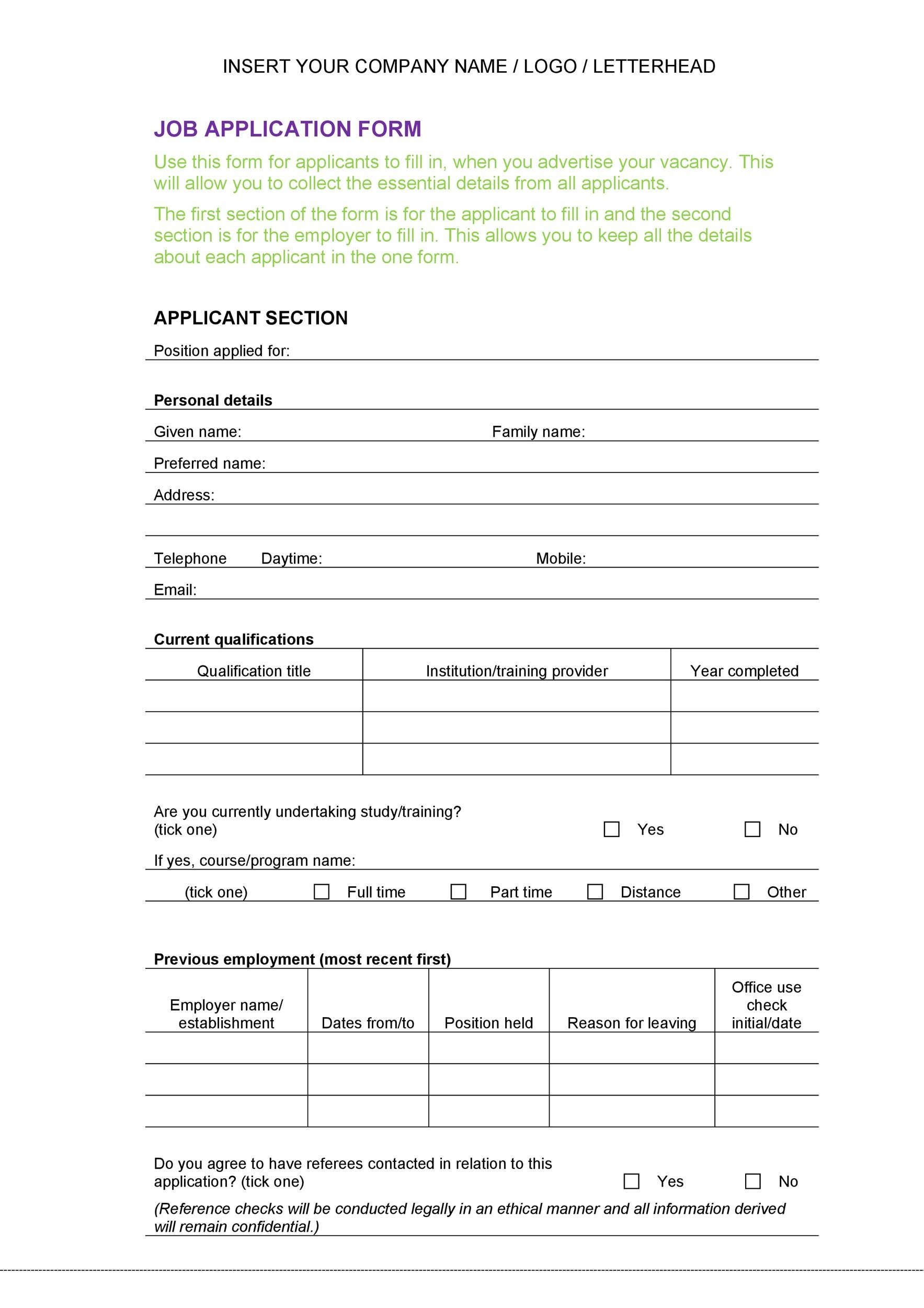 This template includes sections for personal information, work experience, education, and professional skills. It also includes a section for applicants to provide a brief statement about why they are interested in the position.
This template includes sections for personal information, work experience, education, and professional skills. It also includes a section for applicants to provide a brief statement about why they are interested in the position.
Template 3
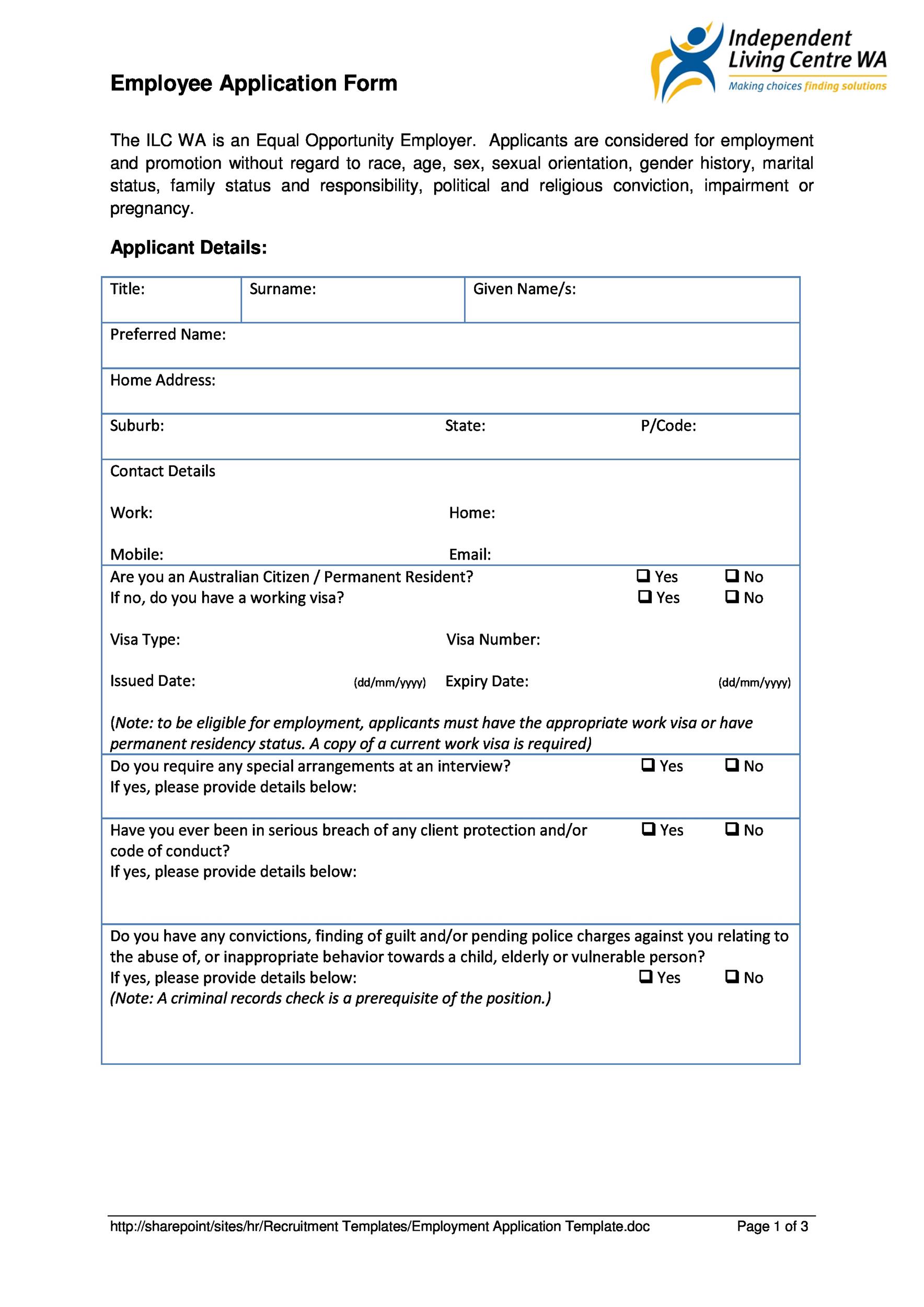 This template includes sections for personal information, employment history, education, and technical skills. It also includes space for applicants to provide references.
This template includes sections for personal information, employment history, education, and technical skills. It also includes space for applicants to provide references.
Template 4
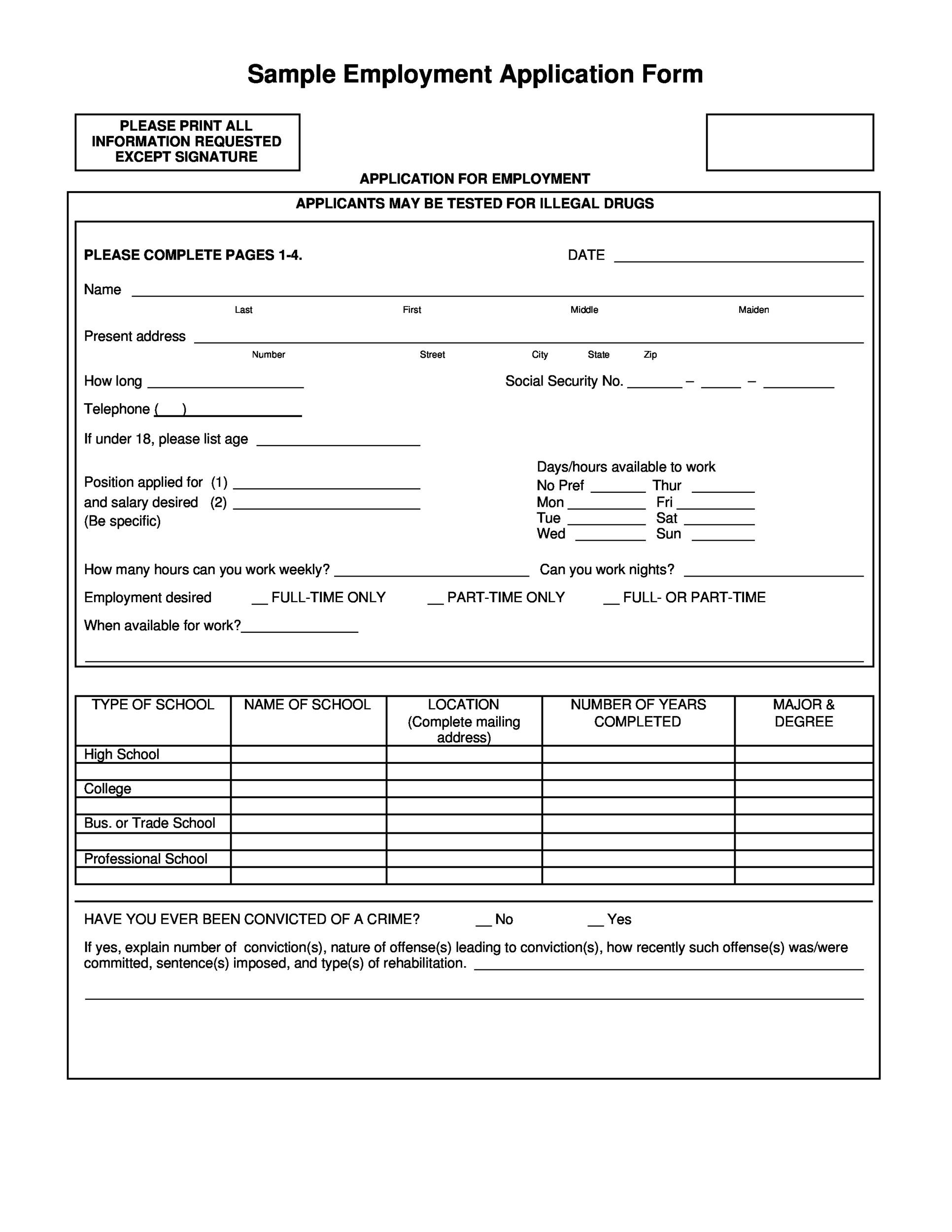 This template includes sections for personal information, education, work history, and references. It also includes a section for applicants to provide information about any relevant certifications they hold.
This template includes sections for personal information, education, work history, and references. It also includes a section for applicants to provide information about any relevant certifications they hold.
Template 5
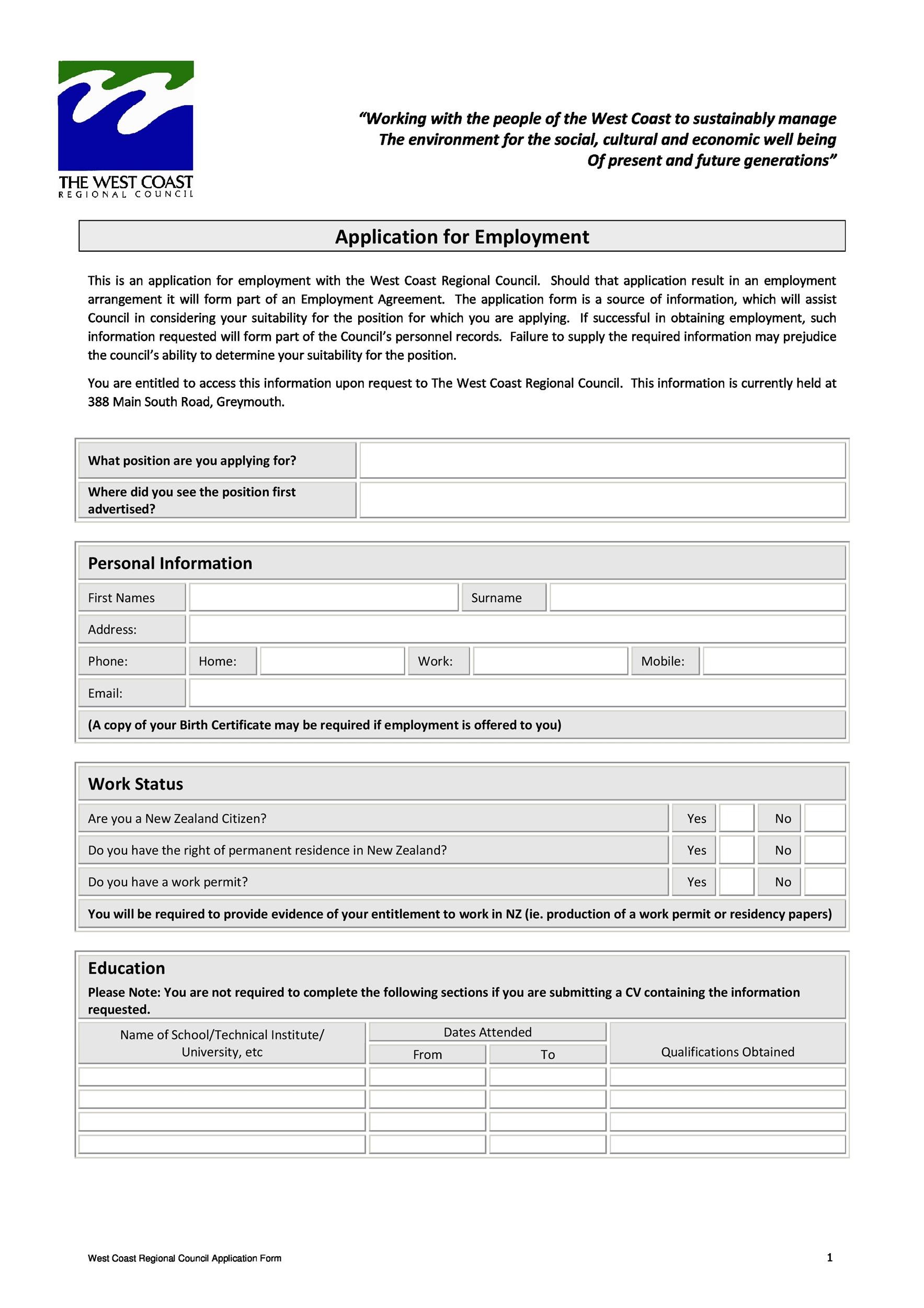 This template includes sections for personal information, employment history, education, and skills. It also includes space for applicants to provide references and a brief statement about their qualifications for the job.
This template includes sections for personal information, employment history, education, and skills. It also includes space for applicants to provide references and a brief statement about their qualifications for the job.
Template 6
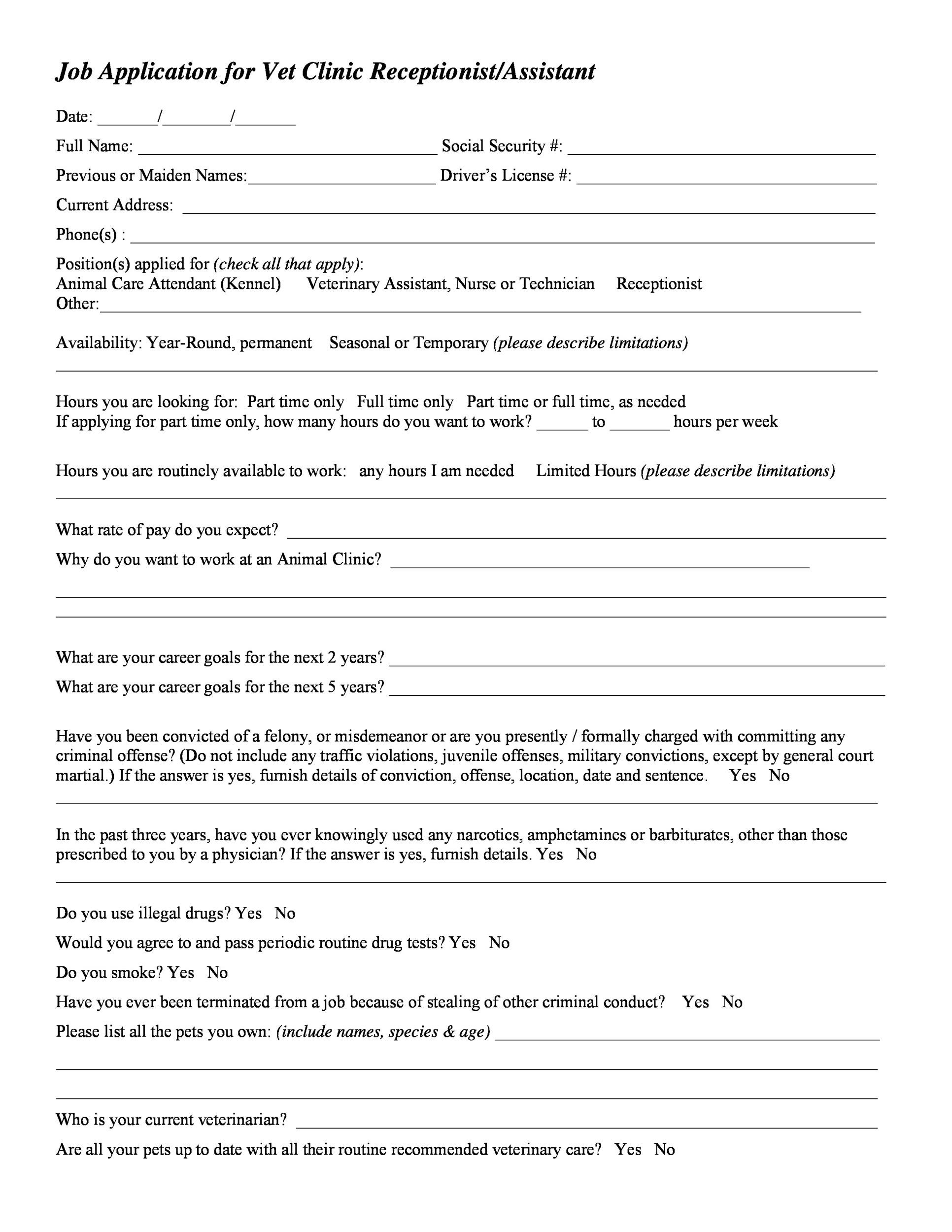 This template includes sections for personal information, employment history, education, and professional skills. It also includes space for applicants to provide references and a section for any additional comments they would like to add.
This template includes sections for personal information, employment history, education, and professional skills. It also includes space for applicants to provide references and a section for any additional comments they would like to add.
Conclusion
Creating employment application forms is an important part of the hiring process for any business. By using standardized forms, you can ensure that you are collecting all necessary information from candidates in a fair and consistent way.
With the templates provided above, you’ll have a head start on creating your own forms that are tailored to your specific needs and requirements.